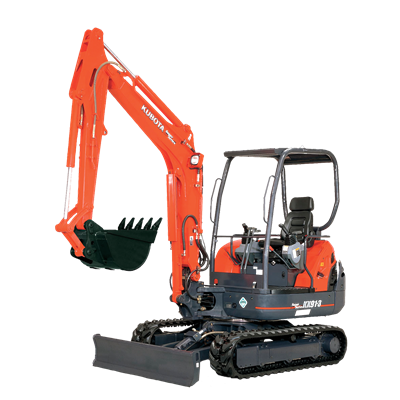Forklift Rental: Versatile Solutions for Material Handling
Forklift Rental: Versatile Solutions for Material Handling
Blog Article
Why Leasing Heavy Equipment Makes Financial Feeling for Building Organizations
In the realm of building and construction service operations, the decision to lease heavy devices over purchasing outright is a strategic selection that progressively proves to be monetarily prudent. The appeal of cost-effectiveness, particularly despite varying task demands and market unpredictabilities, is a compelling variable that steers organizations towards the rental choice. However, past the obvious financial savings, there are nuanced layers to take into consideration that clarify why leasing heavy devices is not merely a matter of budgeting yet a calculated move that can influence a business's bottom line and functional efficiency in significant methods.
Cost-Effective Service
When thinking about renting out hefty tools for construction companies, choosing for this cost-efficient service can dramatically impact the overall budget plan management of the task. Building and construction tasks often call for a varied array of specialized equipment, from excavators to excavators, which can be expensive to purchase outright. By choosing to rent equipment rather, companies can access the required tools without facing the high upfront prices connected with possession. This rental strategy permits services to designate their funds a lot more effectively, guiding funds towards other essential aspects of the project such as labor, products, and precaution.
Building and construction projects differ in duration and extent, and renting gives the benefit of scaling equipment needs according to specific job demands. Generally, selecting to rent out heavy tools provides building services with a functional and cost-efficient remedy that improves task budget administration.
No Maintenance Prices
Selecting equipment leasings eases the problem of maintenance costs for building and construction companies (heavy equipment rental). When renting out hefty tools, the obligation for repair and maintenance commonly falls on the rental firm instead of the building and construction business. This arrangement can cause significant expense savings for business, as they are not required to budget for unanticipated maintenance expenditures or allocate sources for routine maintenance
By eliminating upkeep prices, building organizations can much better handle their finances and designate sources extra successfully. This economic predictability enables businesses to strategy and budget plan more properly for tasks, ensuring that they stay within budget plan and stay clear of unanticipated expenditures that can affect their lower line.

Adaptability in Workflow

In addition, leasing heavy devices provides the chance to examine various equipment and models to establish what works best for particular projects or tasks. This experimental method can aid companies maximize their operations by choosing one of the most effective and cost-effective devices for their needs. Furthermore, renting enables organizations to easily update to more recent or advanced equipment as technology developments, ensuring that they constantly have access to the most current and most productive tools in the market. Inevitably, the flexibility provided by leasing hefty equipment empowers building and construction organizations to adapt to altering needs and remain affordable on the market.
Access to Newest Equipment
Having access to the newest heavy equipment through renting provides building services with an one-upmanship in the market. Leasing equipment permits building and construction firms to make use of modern equipment without having to birth the substantial ahead of time expenses of buying them outright (heavy equipment rental). This access to cutting-edge tools enables organizations to tackle a bigger variety of jobs and contend much more effectively with competitors who may still be utilizing obsolete equipment
By renting out the most up to date equipment, building firms can take advantage of technical improvements that enhance effectiveness, safety and security, and precision in their operations. Newer devices commonly comes equipped with attributes that boost productivity, reduce downtime, and adhere to the most up to date market criteria and guidelines. This not only improves the top quality of job yet also aids in finishing projects within deadlines, bring about higher client satisfaction and possibly more service opportunities.
Furthermore, having accessibility to one of the most current equipment with leasing permits building and construction services to stay ahead of the contour in terms of technology and adaptability. They can quickly scale their operations or pivot to various kinds of tasks without being limited by obsolete or underperforming equipment. In a fast-evolving industry like building, staying present with the most recent devices patterns is critical for lasting success and development.
Scalability for Tasks
Accessing scalable heavy equipment through rental agreements enables construction businesses to efficiently readjust their ability to fulfill differing job demands. Construction jobs are dynamic in dozer rental nature, with needs that can rise and fall throughout the period of the task. By choosing to rent hefty tools, services can quickly scale their operations up or down based upon the details requirements of each project. This flexibility allows business to take on a bigger array of jobs without being limited by the schedule or capability of owned and operated devices.
Furthermore, leasing devices for projects with specialized requirements can be extra cost-effective than buying and preserving tools that might just be used occasionally. If a project needs a certain kind of equipment that the building and construction firm does not very own, renting it for the duration of that project can be a much more economically prudent option. Furthermore, renting out equipment gets rid of the need for long-lasting storage space and upkeep costs, better adding to the total scalability and performance of building procedures.

Verdict
To conclude, leasing heavy tools uses an economical service for construction companies by eliminating upkeep expenses, providing adaptability in operations, and granting accessibility to the most up to date equipment. It likewise allows for scalability in tasks, making it a useful choice for building business looking to enhance their financial sources and improve their procedures.
Report this page